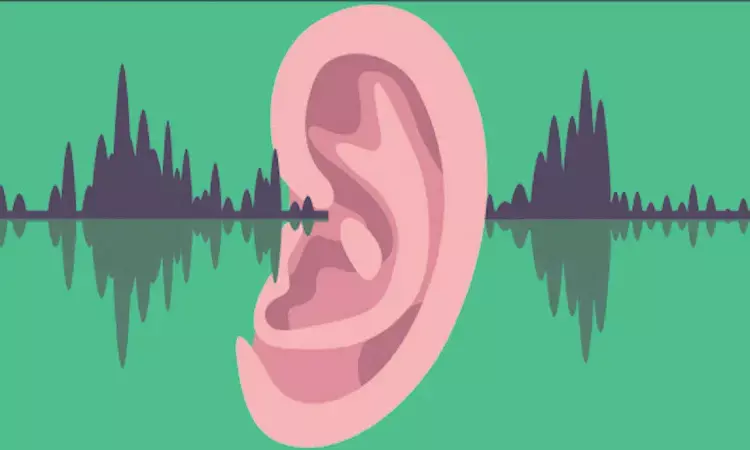- Home
- Medical news & Guidelines
- Anesthesiology
- Cardiology and CTVS
- Critical Care
- Dentistry
- Dermatology
- Diabetes and Endocrinology
- ENT
- Gastroenterology
- Medicine
- Nephrology
- Neurology
- Obstretics-Gynaecology
- Oncology
- Ophthalmology
- Orthopaedics
- Pediatrics-Neonatology
- Psychiatry
- Pulmonology
- Radiology
- Surgery
- Urology
- Laboratory Medicine
- Diet
- Nursing
- Paramedical
- Physiotherapy
- Health news
- Fact Check
- Bone Health Fact Check
- Brain Health Fact Check
- Cancer Related Fact Check
- Child Care Fact Check
- Dental and oral health fact check
- Diabetes and metabolic health fact check
- Diet and Nutrition Fact Check
- Eye and ENT Care Fact Check
- Fitness fact check
- Gut health fact check
- Heart health fact check
- Kidney health fact check
- Medical education fact check
- Men's health fact check
- Respiratory fact check
- Skin and hair care fact check
- Vaccine and Immunization fact check
- Women's health fact check
- AYUSH
- State News
- Andaman and Nicobar Islands
- Andhra Pradesh
- Arunachal Pradesh
- Assam
- Bihar
- Chandigarh
- Chattisgarh
- Dadra and Nagar Haveli
- Daman and Diu
- Delhi
- Goa
- Gujarat
- Haryana
- Himachal Pradesh
- Jammu & Kashmir
- Jharkhand
- Karnataka
- Kerala
- Ladakh
- Lakshadweep
- Madhya Pradesh
- Maharashtra
- Manipur
- Meghalaya
- Mizoram
- Nagaland
- Odisha
- Puducherry
- Punjab
- Rajasthan
- Sikkim
- Tamil Nadu
- Telangana
- Tripura
- Uttar Pradesh
- Uttrakhand
- West Bengal
- Medical Education
- Industry
Hearing loss serious concern with respect to use of Teprotumumab in Thyroid Eye Disease

In a new study conducted by Connie M. Sears and team found that hearing loss is a worrisome side effect of teprotumumab. The findings of this study were published in the American Journal of Ophthalmology on 25th February, 2022.
The main objective of this study was to assess the occurrence, severity, and remission of hearing impairment in individuals receiving teprotumumab for thyroid eye disease (TED). For this a prospective observational case series was conducted. Ophthalmic examination and adverse event evaluation, including otologic symptoms, were done in consecutive patients who had at least four teprotumumab infusions at baseline, following infusions 2, 4, and 8, and at 6-month follow-up. Labs were taken at the beginning and end of therapy. Patients with new or worsening otologic complaints were given audiometry, patulous Eustachian tube (PET) testing, and an otolaryngology assessment, with a subgroup receiving baseline and post-treatment testing.
The key findings of this study were as follow:
1. Twenty-seven patients were studied (3 males, 24 females, average 56.3-years-old). After a mean of 3.8 infusions, 22 patients (81.5%) experienced new subjective otologic complaints (SD 1.8).
2. Most patients with tinnitus (100%), ear plugging/fullness (90.9%), and autophony (83.3%) obtained symptom clearance at 39.2 weeks following the last injection, however only 45.5% (5 of 11) of patients with subjective hearing loss/decreased word comprehension experienced resolution.
3. Six patients had baseline and post-treatment audiometry, with five developing teprotumumab-related sensorineural hearing loss (SNHL) and one developing PET.
4. At the time of the final follow-up, three of the five patients with teprotumumab-related SNHL exhibited persistent subjective hearing loss.
5. Prior hearing loss was revealed to be a risk factor for teprotumumab-related SNHL (p=0.008).
In conclusion, researchers advocate baseline audiometry with PET scanning and repeat testing if new otologic symptoms occur until risk factors for hearing loss are well known. Guidelines for screening, monitoring, and prevention are required.
Reference:
Sears, C. M., Azad, A. D., Amarikwa, L., Pham, B. H., Men, C. J., Kaplan, D. N., Liu, J., Hoffman, A. R., Swanson, A., Alyono, J., Lee, J. Y., Dosiou, C., & Kossler, A. L. (2022). Hearing Dysfunction After Treatment with Teprotumumab for Thyroid Eye Disease. American journal of ophthalmology, S0002-9394(22)00073-3. Advance online publication. https://doi.org/10.1016/j.ajo.2022.02.015
Medical Dialogues consists of a team of passionate medical/scientific writers, led by doctors and healthcare researchers. Our team efforts to bring you updated and timely news about the important happenings of the medical and healthcare sector. Our editorial team can be reached at editorial@medicaldialogues.in.
Dr Kamal Kant Kohli-MBBS, DTCD- a chest specialist with more than 30 years of practice and a flair for writing clinical articles, Dr Kamal Kant Kohli joined Medical Dialogues as a Chief Editor of Medical News. Besides writing articles, as an editor, he proofreads and verifies all the medical content published on Medical Dialogues including those coming from journals, studies,medical conferences,guidelines etc. Email: drkohli@medicaldialogues.in. Contact no. 011-43720751


